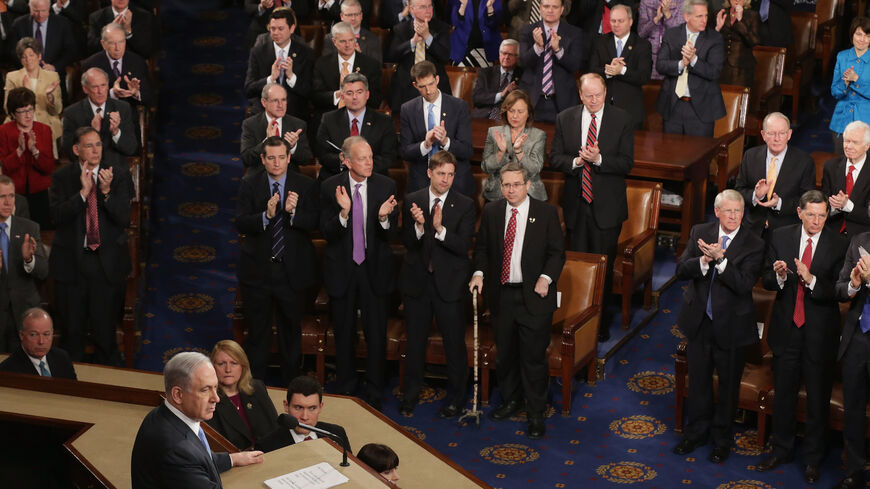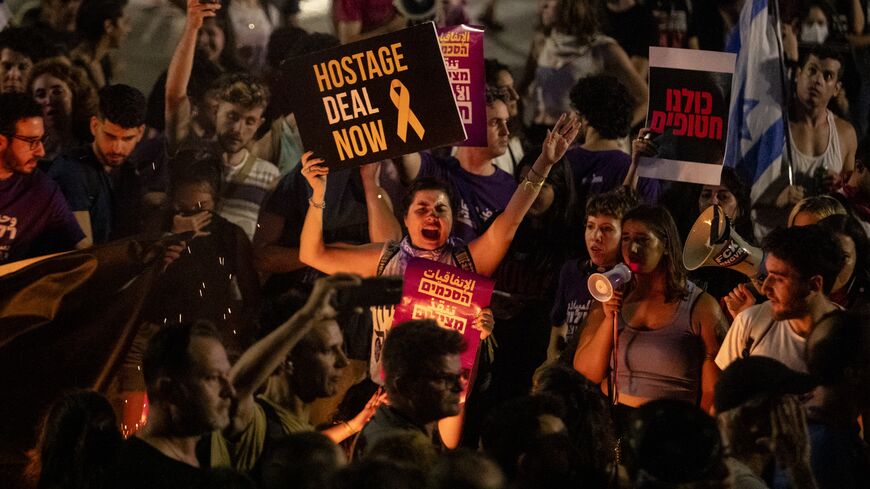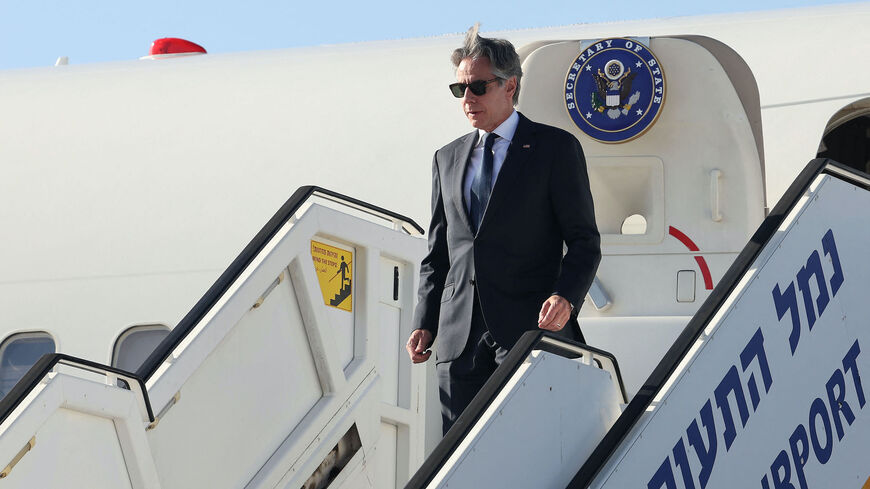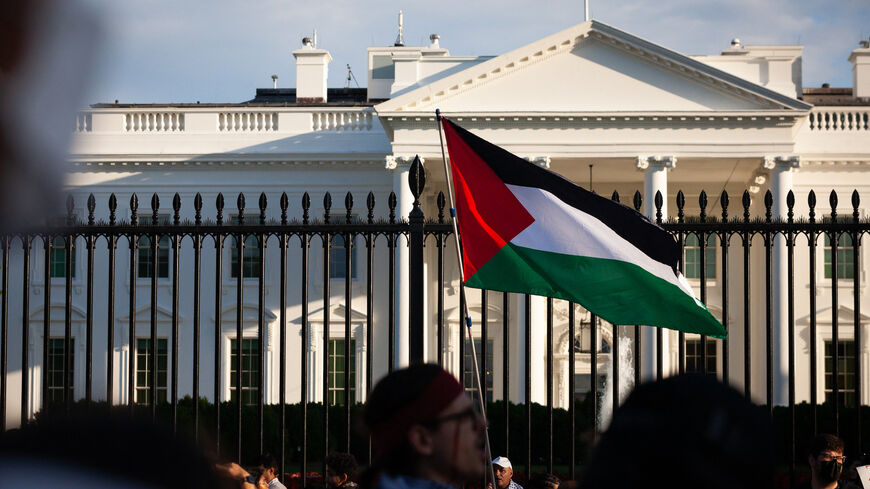Biden exit from presidential race hangs over Netanyahu's Washington trip
The Israeli prime minister’s highly anticipated address to Congress risks being overshadowed by President Joe Biden’s decision to drop out of the presidential contest.
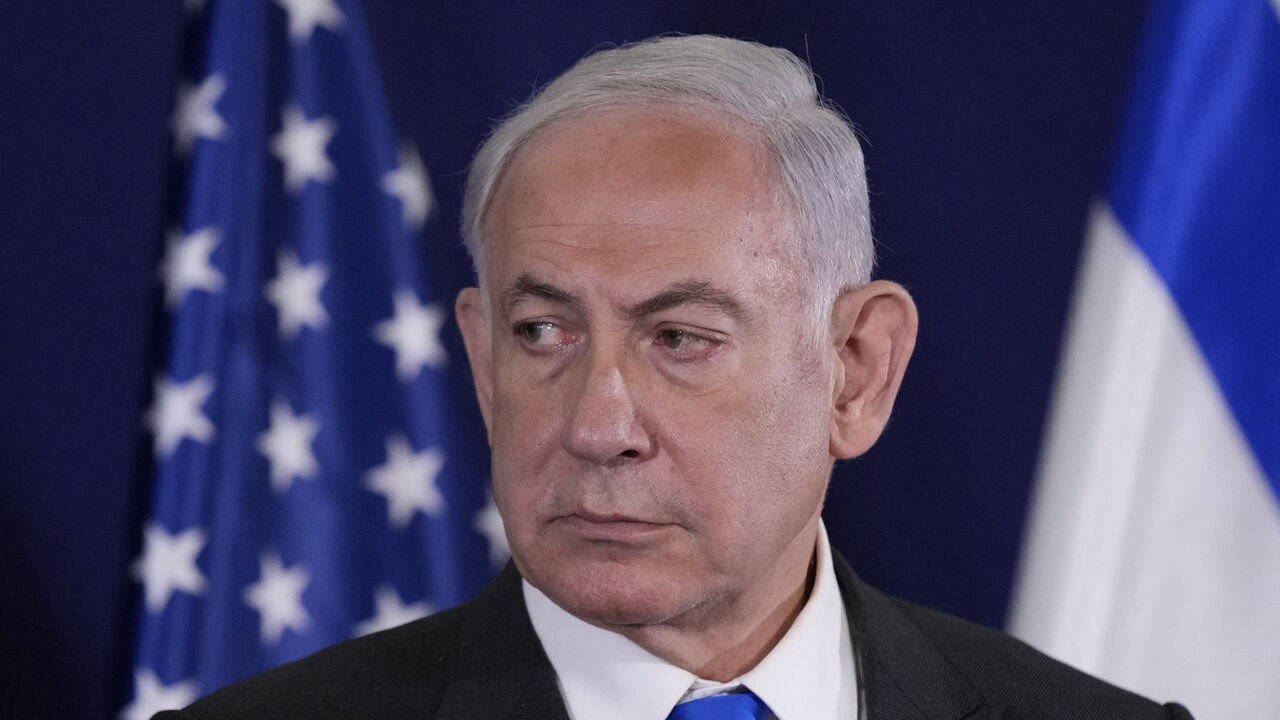
WASHINGTON — Israeli Prime Minister Benjamin Netanyahu departed for Washington on Monday in a high-stakes visit clouded by political upheaval in the United States.
Israel’s longest-serving prime minister arrives a day after President Joe Biden's 11th-hour announcement that he would not seek reelection following pressure from his own party. With just six months left in office, Biden hopes to secure a cease-fire in the Gaza Strip as well as progress on a legacy-defining Israeli-Saudi normalization deal that would bolster his foreign policy record.
The two leaders' expected meeting on Thursday will be Netanyahu's first at the White House since returning to power in late 2022 at the helm of a government Biden has described as the most extreme in Israel's history. Biden's clashes with Netanyahu and his right-wing government spilled into public view this year as the president sought to balance longtime support for Israel with increasing unease over its military strategy in the Gaza Strip. Earlier this summer, Biden suggested in an interview that Netanyahu was prolonging the Gaza war to ensure his own political survival.
Netanyahu will also meet separately with Vice President Kamala Harris, who is expected to lead the Democratic ticket now that Biden has stepped aside. Ahead of his trip, Netanyahu said he would use the Washington visit to thank Biden for his support as well as strengthen bipartisan backing for Israel.
“In this time of war and uncertainty, it's important that Israel's enemies know that America and Israel stand together today, tomorrow and always,” Netanyahu told reporters at Ben-Gurion International Airport.
Netanyahu’s congressional address on Wednesday will be his fourth, surpassing the record of three that he shared with Britain's wartime leader Winston Churchill.
“On a personal level, Netanyahu considers this to be a demonstration that he and only he alone among Israeli prime ministers can pull this off,” said Aaron David Miller, a senior fellow at the Carnegie Endowment for International Peace and a former US State Department Middle East analyst.
Netanyahu will appear before Congress less than two weeks after the attempted assassination of former President Donald Trump, whose administration embraced policies that critics said undermined the two-state solution between Israel and the Palestinians.
Their once close relationship soured after Netanyahu congratulated Biden on his 2020 win while Trump was still working to overturn the results. Netanyahu released a video condemning the July 13 shooting at Trump's rally, reportedly in an effort to mend ties ahead of his possible return to the White House.
Thousands are expected to turn out for demonstrations across Washington protesting Netanyahu's visit. A number of left-leaning lawmakers, including Sen. Elizabeth Warren (D-Mass.), Sen. Brian Schatz (D-Hawaii) and Sen. Bernie Sanders (I-Vt.) have said they will skip his speech on Wednesday in protest of the soaring death toll and humanitarian disaster in Gaza.
Israel’s military campaign has killed more than 38,900 people, according to the Gaza Health Ministry, which does not differentiate between civilians and combatants but says a majority are women and children.
Local health officials said at least 37 people were killed on Monday as the Israeli military began operations in eastern Khan Younis and called on thousands of Palestinian civilians to evacuate what was previously designated a humanitarian safe zone.
Israel carried out a wave of deadly strikes in Gaza last week, including one that hit a school sheltering displaced people. On July 13, Israel targeted Hamas military commander Mohammed Deif in a strike that authorities in Gaza said killed at least 90 Palestinians inside an Israeli-designated safe area near Khan Younis.
The Israeli military said Friday there are “increasing signs” Deif was killed in an airstrike. Hamas claims he is still alive.
Netanyahu maintains that the war will not end until Hamas’ military and governing capabilities are destroyed, a position that has put him at odds with Israel’s defense establishment, including the Israel Defense Forces' top spokesperson, who argued last month that fully defeating the militants is not possible. Members of Netanyahu’s religious-nationalist coalition have threatened to bring down his government over a proposed cease-fire and hostage deal.
David Makovsky, a distinguished fellow at the Washington Institute for Near East Policy who served on the US negotiating team during the 2013-2014 Israeli-Palestinian talks, expects Netanyahu’s much-anticipated trip to focus on the hostages still held by Hamas.
Israeli authorities estimate Hamas is holding 116 captives, at least 44 of whom are confirmed dead. The Palestinian militant group abducted 251 people during its cross-border attack on Oct. 7 that also killed some 1,200 people in southern Israel.
“There are no signs that he's going to carve out any new ground on some of the issues that are at odds with the administration, like the day after or language on the Palestinians about a Saudi deal,” said Makovsky.
In late May, Biden unveiled a three-phase plan that would begin with a six-week pause in the fighting in exchange for the release of women, elderly and severely wounded hostages. Under pressure from his right-wing allies, Netanyahu has recently hardened his stance in the negotiations, including by demanding that Israeli troops retain control of the Palestinian side of the border crossing with Egypt.
Analysts say Netanyahu could be more inclined to make concessions after the Knesset begins its three-month recess on July 28, after which it would be difficult to hold a no-confidence vote against him.
Secretary of State Antony Blinken voiced cautious optimism Friday that a deal between Hamas and Israel was within reach following months of US-backed negotiations led by Qatar and Egypt. Israeli news outlets reported that Netanyahu has approved sending an Israeli negotiating team to Qatar on Thursday for continued discussions on a possible deal.
“I believe we're inside the 10-yard line,” Blinken said, using a football analogy. “We also know that with anything, the last 10 yards are often the hardest.”



